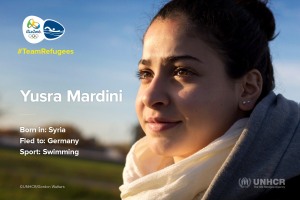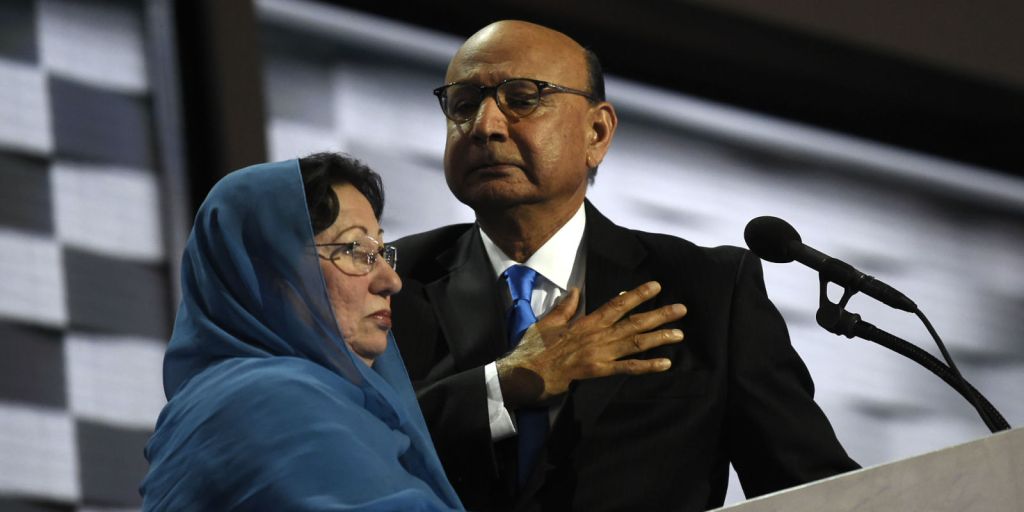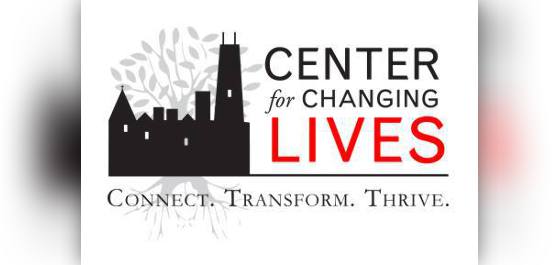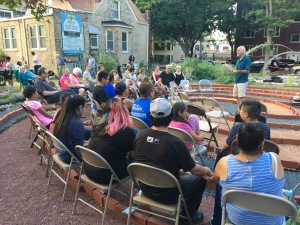Texts: Genesis 15:1-6 + Psalm 33:12-22 + Hebrews 11:1-3, 8-16 + Luke 12:32-40
 The world is full of heroes. That’s true every week, but this week they’ve really been on display. Yusra Mardini, the 18-year-old Syrian refugee who, together with her sister, pushed a boat carrying twenty people through the sea for three hours, saving their lives and is now competing in the Olympics under the Olympic banner. Khizr and Ghazala Khan, the parents of Army Captain Humayun Khan (himself a hero), Pakistani immigrants who came to the United States seeking opportunity for their family and ended up at the center of national politics for the last two weeks following Khizr’s impassioned speech denouncing the rhetoric of racism and islamophobia infecting our nation’s political life.
The world is full of heroes. That’s true every week, but this week they’ve really been on display. Yusra Mardini, the 18-year-old Syrian refugee who, together with her sister, pushed a boat carrying twenty people through the sea for three hours, saving their lives and is now competing in the Olympics under the Olympic banner. Khizr and Ghazala Khan, the parents of Army Captain Humayun Khan (himself a hero), Pakistani immigrants who came to the United States seeking opportunity for their family and ended up at the center of national politics for the last two weeks following Khizr’s impassioned speech denouncing the rhetoric of racism and islamophobia infecting our nation’s political life.

“They confessed that they were strangers and foreigners on the earth, for people who speak in this way make it clear that they are seeking a homeland. If they had been thinking of the land that they had left behind, they would have had opportunity to return. But as it is, they desire a better country, that is, a heavenly one. Therefore God is not ashamed to be called their God; indeed, God has prepared a city for them.” (Heb. 11:13-16)
The Letter to the Hebrews is full of memorable turns of phrase from the description of faith as “the assurance of things hoped for, the conviction of things not seen” (11:1) to the “great cloud of witnesses” (12:1) that surround us. If the verses I’ve just read are less familiar, they’re no less full of poetry and power. In fact, I almost named the sermon series that begins today and will continue through the month of August, “A Better Country,” but decided that at this point in the presidential campaign it would be heard too narrowly as a focus on electoral politics, when what the author is really talking about is more akin to what Parker Palmer has termed “courage” in his book “Healing the Heart of Democracy: The Courage to Create a Politics Worthy of the Human Spirit.”
Parker dedicated that book to Christina Taylor Green, the 10 year-old girl who was shot and killed five years ago in the same event at which Congresswoman “Gabby” Giffords of Arizona was also shot; and to Addie Mae Collins, Denise McNair, Carole Robertson, and Cynthia Wesley, better known as the “four little girls” who died in the racist bombing of the 16th Street Baptist Church in Birmingham, Alabama during the Civil Rights movement fifty-three years ago. In his dedication, he writes,
“When we forget that politics is about weaving a fabric of compassion and justice on which everyone can depend, the first to suffer are the most vulnerable among us — our children, the elderly, the mentally ill, the poor, and the homeless. As they suffer, so does the integrity of our democracy.”
That’s what draws me to the image of “a better country,” and what also ultimately moved me to title this series, “Sight Unseen” — because what we are laboring for is ultimately something we have yet to see: a homeland here on this earth of which all people are equally residents, equally citizens, equally honored and cared for, “a better country, that is, a heavenly one.” (Heb. 11:16a)
But it is exhausting, longing and laboring for this country to come into view. It is tempting to look back at the lands we have known and to convince ourselves that the world as it is is sufficient or, at least, the best we can hope for. Then we hear Yusra’s story, and we imagine her muscles freezing up in the cold sea as she pushes her fellow refugees toward that better country, the one she has never seen. Then we hear Khizr and Ghazala Khan, and see Khizr brandishing his pocket edition of the United States Constitution in the face of calls to ban an entire religious community from entering this nation, and we imagine the faith it must take to hold fast to promises made but not yet kept.
That is the heart of the Letter to the Hebrews, it is a letter to people who have not yet seen the promises of God fulfilled, who wonder if they will ever be kept. It is a word of encouragement to worn down people, a reminder that we have only come this far by faith. It is a roll call of the saints, the heroes, the ones like Abraham and Sarah, Yusra, Khizr and Ghazala, who left behind all they had known and fixed their eyes on the stars to guide them into a future filled with hope. It is a call to faith in things we have only hoped for, and conviction in sights as yet unseen (11:1).
And now, if you’ll let me, I want to make this all a bit more personal and talk for just a few moments about us as a congregation in light of this word from scripture. There is so much in this Letter to the Hebrews that makes me think of the journey we’ve been on for the last ten years. The setting out without knowing entirely where we’d end up. The power of procreation at a late age manifested as a congregation made up of elderly people who saw wave after wave of young adults and even younger children begin to fill in the empty pews. The promise of a future filled with hope set alongside the constant exhortation to never give up. There’s so much in this letter that feels familiar to me when I think of the distance we have come. I’m tempted to place our story in the background, as one more example among many, a word of encouragement for other congregations, other communities of faith preparing to leave behind the known past for the promised future.
But this letter is still for us. This letter is calling out to us from history, urging us to cast our lot fully with the “strangers and foreigners on the earth” (Heb. 11:13). To, as Jesus puts it, “sell your possessions, and give alms” and “make purses for yourselves that do not wear out, an unfailing treasure in heaven.” (Lk. 12:33)
There is a convergence of conversations and actions happening in our congregation and in the communities that surround us that I believe is about to set us on a new course just as adventurous as the one we have been on these last ten years. Having already sold our chief possession, the building that had housed us for a century, we are now considering anew what it means for us to “give alms.” For the last six months the Council has been deliberating with one another about the practical, ethical, and theological implications of the fact that we have gone, in a very short time, from being rich in land and poor in cash to being practically itinerant but carrying with us an enormous amount of money. Over the last few months the Social Justice committee has joined this conversation, sharing with the Council their intention to move us from a more shallow monthly focus on benevolent giving to a strategy of 6-month campaigns designed to deepen our engagement with partner organizations working in our community to build that better country, the one none of us has ever fully seen.

We are beginning with Center for Changing Lives, an organization that grew out of Humboldt Park Social Services, which itself grew out of Humboldt Park United Methodist Church, a member of the Logan Square Ecumenical Alliance just two blocks north of us here on Mozart St. Center for Changing Lives provides financial coaching and employment assistance to families and individuals in our neighborhood struggling to make it in today’s economy. As we learn more about their work and are shaped by it we’ll not only be looking for ways to enhance their mission, but will benefit directly ourselves from their “Just Financials” curriculum, a powerful tool for helping us develop a shared vocabulary for connecting our values as Christian people to our actions with regard to our wealth, taking Jesus’ encouragement to “sell your possessions and give alms” seriously enough to really ask how our relationship to God is shaping our relationship to what we earn and what we own.
But stewardship of wealth is only one aspect of our vocation as baptized people. As we enter this new phase of our life together we will be talking more openly, not only in worship but in small groups with one another, about the ways we choose to steward the gifts of our lives. Whether at work or at home, with family or friends, how do we live out our baptisms? How do we live into that vocation, so that our whole life reflects our relationship to the God of life and love and liberation? We’ll be listening for signs of the Holy Spirit’s work in each other, deepening our capacities for love, joy, peace, patience, kindness, goodness, faithfulness, gentleness, and self-control (Gal. 5:22-23).

So we will. We will listen to each other’s stories, in and out of worship, within this congregation and beyond its glass windows. We will listen, and we will grow. We will be experimenting with adding services this fall, not simply because those of us who are already here are feeling a little bit cramped, but because we know there are others in our neighborhood and across our city who are longing for a glimpse of that better country, that city God is already preparing for those who face the future by faith. We will plan for growth and we will embrace it because we are inheritors of the same promise made to Abraham and Sarah, that their descendants would be more numerous than the stars in the sky. Those descendants, who are Jewish and Christian and Muslim, whose rich diversity points us beyond Abraham and Sarah to all of humanity, are our people and we are theirs in ways we know to be true even if we have never seen it lived out perfectly. But we see that future coming from a distance and we welcome it (Heb. 11:13).
Amen.